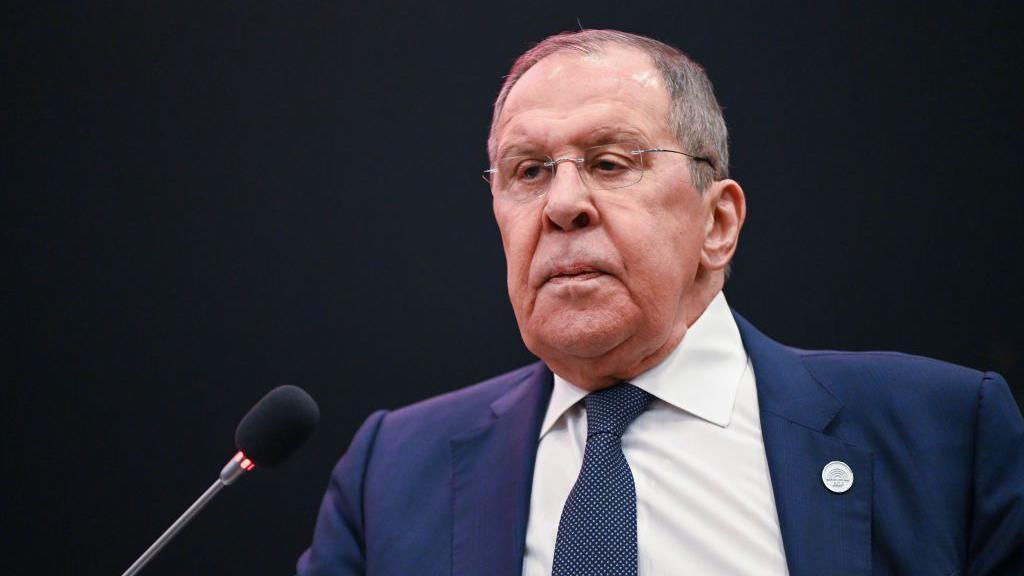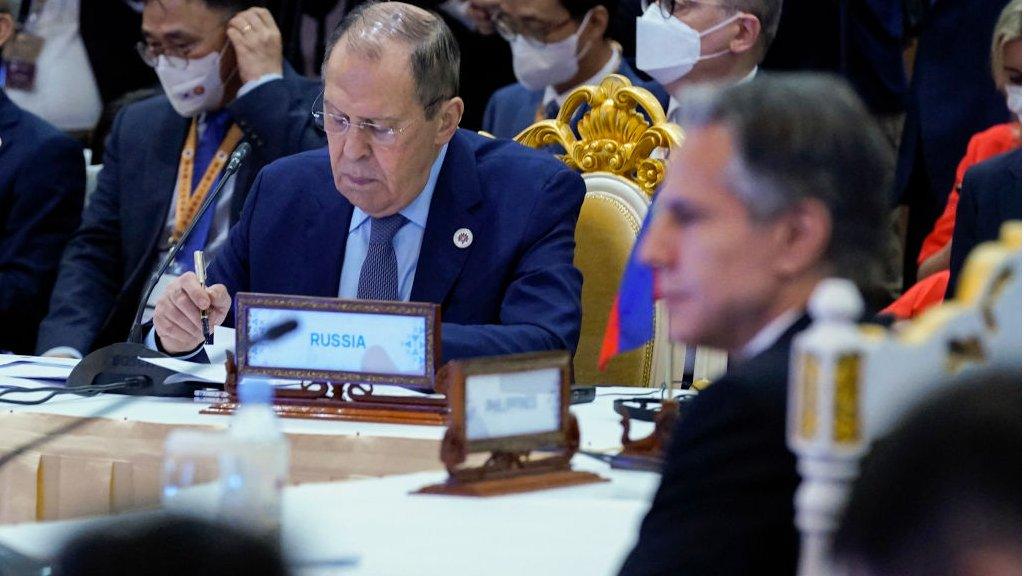First EU visit for Russian foreign minister since invasion

Sergei Lavrov was sanctioned by the EU following Moscow's full-scale invasion of Ukraine in 2022
- Published
Russia's Foreign Minister Sergei Lavrov has travelled to Malta for a European security summit, marking his first visit to an EU state since the full-scale invasion of Ukraine.
His Ukrainian counterpart Andriy Sybiga, who is also attending the Organization for Security and Cooperation in Europe (OSCE) meeting, walked out of the hall ahead of Lavrov's remarks, according to the country's foreign ministry.
Lavrov's attendance has proven controversial, with Poland's foreign minister refusing to meet him and Sybiga branding the diplomat a "war criminal".
The Russian foreign minister accused the West of fuelling a new Cold War "with a much greater risk of a transition to a hot one".
Sybiga said Russia's involvement in the OSCE was contrary to the organisation's aims, describing it as the "biggest threat to our common security".
US Secretary of State Antony Blinken also attended. He accused Russia of escalating the war in Ukraine and spreading a "tsunami of misinformation".
"Let's not fool ourselves and let's not allow [Lavrov] or anyone else to fool us," he said.
"This is not about and has never been about Russia's security. This is about Mr Putin's imperial project to erase Ukraine from the map."
Blinken and Lavrov, who have had limited interaction since the war in Ukraine began, are not scheduled to meet at the summit.
Kyiv boycotted last year's OSCE meeting in North Macedonia, which is not an EU member, due to Lavrov's attendance and has previously called for Russia's expulsion from the group.
Several diplomats and officials were seen leaving the hall ahead of Lavrov's remarks.
Moscow has grown increasingly critical of the OSCE, which was set up to ease east-west tensions during the Cold War and aims to prevent conflict and manage crises in Europe.
The forum of 57 states meets to discuss security issues on the continent and carries out practical security work, including sending observers to conflicts and elections globally.
Last year, Lavrov claimed the OSCE was "being turned into an appendage of Nato and the European Union", while Russia has hampered the group's ability to function in recent years by vetoing several major decisions.
Moscow voted to suspend its involvement in its parliamentary assembly earlier this year, calling it anti-Russian and discriminatory.
Ahead of this week's summit, Russian foreign ministry spokeswoman Maria Zakharova said Lavrov would use the occasion to criticise the OSCE's "institutional crisis".
She said the OSCE had been "Ukrainised" and accused Western states of "using this platform for their own interests".
Zakharova also wrote on Telegram that Malta had annulled her visa to accompany Lavrov to the meeting.
The Maltese foreign affairs office said that three OSCE member countries had objected to extending the visa to Zakharova, who is facing a travel ban.
While Lavrov is subject to EU sanctions, he is not under a travel ban.
Related topics
- Published2 March 2023
